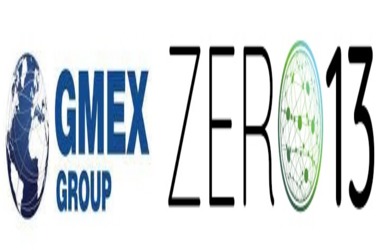 ZERO13, a climate fintech that offers an automated AI and multi-blockchain-driven aggregation ecosystem for various carbon credits and ESG real-assets, has been launched by GMEX. ZERO13 interconnects various stakeholders such as registries, banks, custodians, asset managers, corporations, purchasers and sellers, markets, exchanges, climate tech, and fintech companies to achieve Net Zero.
ZERO13, a climate fintech that offers an automated AI and multi-blockchain-driven aggregation ecosystem for various carbon credits and ESG real-assets, has been launched by GMEX. ZERO13 interconnects various stakeholders such as registries, banks, custodians, asset managers, corporations, purchasers and sellers, markets, exchanges, climate tech, and fintech companies to achieve Net Zero.
According to CEO Hirander Misra, GMEX is a company that offers digital business and technology solutions for capital, commodities, and sustainability markets. Their latest project, ZERO13, aims to establish a connected global carbon ecosystem, which is much needed.
The fragmented market with multiple silos, such as registries, carbon exchanges, and over-the-counter trading, is the reason for the lack of a cohesive global carbon ecosystem. These silos operate manually and in isolation, with very little peer-to-peer connectivity. ZERO13’s partner, Verdana Eco-Consortium, plans to prevent double counting by utilizing their dMRV system and registry infrastructure. They will also collaborate with carbon credit standards organizations and share data with the World Bank’s Carbon Action Data Trust to ensure transparency.
ZERO13 will be joined by Alléo Energy and Pay DIRT, who will bring fuel replacement and nature-based carbon credits to the ecosystem. They will also provide end-to-end digital provenance to combat greenwashing and improve distribution. According to the Taskforce on Scaling Voluntary Carbon Markets (TSVCM), the demand for carbon credits may experience a significant increase by 2030, estimated to be at least 15 times higher, and by 2050, it could be over 100 times higher.
According to recent independent research, the value of the traded carbon credit market in 2022 was $998.56 billion. By 2028, the market is estimated to grow to $2.68 trillion, with a yearly growth rate of 18.23% between 2023 and 2028.
Corporations and institutions prioritize carbon credits, but they face various issues that affect them.
● Trust: fraudulent carbon credits, double counting and green washing
● Efficiency: lack of price transparency, vertical silos and market fragmentation
● Distribution: lack of digital registry enablement and too many intermediaries
“A carbon ecosystem that is interconnected globally and urgently required.” According to Hirander Misra, CEO of GMEX Group and ZERO13, their company offers a carbon ecosystem that is globally interconnected and compliant with regulations. This ecosystem is designed to help all types of participants better match supply and demand. Collaborating with Verdana’s Eco-Consortium to address end-to-end issues in voluntary carbon markets digitally and demonstrating complete digital provenance to release carbon credits supply from partners such as Pay DIRT and Alléo Energy is a privilege.
“To enhance credibility among institutional and corporate market participants, it is important to have a transparently verifiable supply of all types of carbon credits that can be securely traded on regulated markets,” said Asad Sultan, CEO of Verdana and Co-Founder of Eco-Consortium. Our collaboration with ZERO13 aims to enhance the credibility and effectiveness of carbon credits and ESG markets through a digitally integrated strategy.
According to Bob Waun, the principal of Pay DIRT, LLC, the effectiveness of biochar in reducing water requirements and fertilizer inputs has been proven, which will lead to an increase in the return on investment for cropland. “Through the utilization of these methods and the technological resources of our collaborator ZERO13, we aim to produce and circulate a consistent stock of digital biochar carbon credits. This will result in advantageous outcomes for our company, as well as contribute to the betterment of the environment, the nutritional quality of food, and the economy of American farming communities,” he stated.
We are excited to declare our collaboration with ZERO13,” said Tim Adkins, Managing Partner of Alléo Energy, LLC. “This partnership is a significant development in terms of sustainability since we can produce a genuinely sustainable fuel product and generate carbon credits at a cost equal to or less than similar fossil fuel. Additionally, we can efficiently distribute these credits in the market using digital means. He stated that their production and supply of biochar, combined with its application to Pay DIRT, LLC’s agricultural land banks, maximizes the creation of carbon credits. The carbon credits have a trustworthy provenance that buyers can rely on to prevent green washing.








